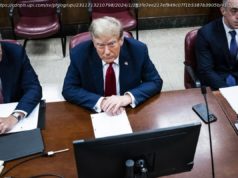The coronavirus is still spreading, and additional stimulus from the government is uncertain.
For all of the talk of how to prioritize public health versus the economy in the response to the coronavirus pandemic, the United States appears to have chosen neither. Early on in the days of the Covid-19 outbreak, much of the conversation among leaders and the media centered on to what extent economic sacrifices should be made in an effort to combat the virus. The government shut down broad swaths of the economy; the logic was that the slowdown in activity would give the country time to get Covid-19 under control. And as soon as that happened, the push began to open things back up. The argument was that the economy just couldn’t afford such drastic measures. Months later, the economy has improved faster than some expected, but the recovery is not happening for everyone, and it’s beginning to stall. Much of the stimulus from the federal government has dried up, and it’s not clear what, if anything, more is to come. Meanwhile, the virus rages on, with new cases now at levels they were back in July. More of the economy is open, but consumers are still hesitant to get back to normal amid so much uncertainty and with a deadly virus still spreading. “You have to get a handle on the pandemic, but there continues to be this argument about how we just need to open up,” said Trevon Logan, an economist at Ohio State University and research associate at the National Bureau of Economic Research. “It is the case that opening up is not going to be enough, and what I mean by that is that opening up is certainly going to be a problem for us if we’re still having a pandemic.” Days before the 2020 election, the United States economy is in a recovery that is uneven and uncertain. People at the top of the economic ladder are getting back to normal much faster than those at the bottom, and certain companies and industries are faring much better than others. Whereas many of the closures and job losses at the outset of the pandemic were temporary, they are increasingly becoming permanent. The country is failing on coronavirus, and it’s failing on keeping the economy afloat in the meantime. “It seems like we’ve come up with let’s just wait and see. That’s just a devastating choice that we’re making,” said Janelle Jones, managing director of policy and research at the Groundwork Collaborative. The foundation of a healthy economy is a healthy workforce, and right now, Americans don’t have either one. The pandemic isn’t over, but a lot of government support for ordinary people is “The rebound has been faster than initially anticipated, but that does not mean that the economy is in the clear,” said Gregory Daco, chief US economist at Oxford Economics. “If anything, today’s economy continues to show a significant shortfall in activity relative to pre-Covid levels, and that is despite what has been a very strong fiscal impulse to stimulate demand.” To put it more plainly, the economy isn’t currently as bad as some feared, but it’s not great, either, and the initial rebound is slowing down fast. As Vox’s Matt Yglesias laid out in September, GDP plunged in the second quarter of the year, and millions of Americans lost their jobs, either temporarily or permanently. But just because people were out of work did not mean they were out of money, thanks to the Coronavirus Aid, Relief, and Economic Security Act, or the CARES Act, the $2.2 trillion stimulus President Donald Trump signed into law in March. It included a $1,200 stimulus check to most American adults and an extra $600 in weekly unemployment insurance benefits through the end of July, which allowed people to stay afloat and even save. “A lot of the transfers that were done with the CARES Act seem to have more legs on them to the extent that they helped smooth out consumption over a longer period,” said Skanda Amarnath, director of research and analysis at the think tank Employ America.
Home
United States
USA — Financial How America gave up on fighting the pandemic and saving the economy






